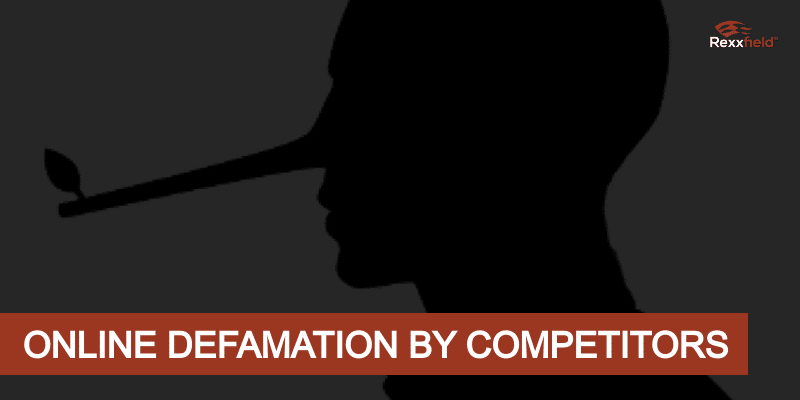Attacked on the Internet by the Competition
Today’s customers turn to online testimonials to make their acquisition decisions. This has generated a very troubling technique on the part of business competitors. Competitor online defamation campaigns are designed to make use of the reviews sites to defame their competitors to try to make prospective clients turn away. They post unfavourable testimonials and remarks that appear to be created by customers. For those reading the reviews when searching for a dependable, reputable company, the negative reviews do the trick: consumers look somewhere else. Often they will end up with the unethical competitors that published the false complaint. These malicious practices by competitors can cost a company between 30 and 90 per cent in revenue losses.
It is regrettable that numerous companies have determined that the most effective way to expand their service is to take down their competitors, particularly since this is a highly unlawful act that might result in significant consequences if they were to be caught. It is just as unfavourable that those who have been taken advantage of by these activities are under the mistaken impression that there is absolutely nothing that they can do, and simply stand back and watch their profits decrease.
Understanding Internet Defamation Attacks
The majority of the time, defaming statements are uploaded on well-known review websites such as Yelp, RateMD, BBB — the sites where potential customers are probably looking for reviews. Attacking a competitor online is simple enough: the competitor creates a fake account or numerous fake accounts. After that posts a collection of fake experiences of poor service, bad products, and more. Online defamation by competitors generally involves posting false statements (libel) or making fake verbal or video testimonials or statements (slander).
Other preferred online platforms for defamation that we see many of our clients struggle with are websites such as ripoffreport.com, complaintsboard.com, and pissedconsumer.com which are specifically set up for publishing complaints. These websites allow anyone to publish anything they want. Statements are not fact-checked and these sites will refuse to remove any fake reviews unless the impacted company pays a significant (extortion) fee.
These slander campaigns can be incredibly efficient because the review websites are so highly placed. When you search for “business name reviews”, those established review websites usually rank in the top 5 search results, which is what most people view.
If your business has been the target of a false negative review placed by your competitor, your potential customers will see these reviews. They have no idea these reviews are fake and will choose to spend their money elsewhere.
Online defamation attacks are damaging as well as frustrating. And although many people think there is nothing they can do, there are ways to fight back. There are ways to respond to these unethical manoeuvres, to remove these reviews, and to expose the competition to stop these malicious attacks.
How to fight back against competitor online defamation

- who is posting the fake reviews,
- get these false reviews removed,
- Work out how much damage these defamation attacks have done to determine if legal action against the competition is worth it.
This may seem impossible, but our cyber investigators are specialized in identifying anonymous users on the internet. Our online reputation department specializes in taking down false reviews, and we also have a network of defamation lawyers worldwide, who can assist in legal action when you choose to take the identified competitor to court.
Help me investigate fake reviews
Our founder, Michael Roberts, was a victim of a smear campaign by a narcissist himself. He has taken action in the civil courts and is still seeking relief. This is not due to a weak defamation case but because of the absurdly long delays between hearings, and judges who are unable to absorb the scope of the problem or online technologies.
Read more about his experience and how he overcame the reputation damage and launched Rexxfield to help other individuals and businesses suffering the same hardship.
“Rumours of internet anonymity have been greatly exaggerated.”
This is why we believe the easier, faster, and more affordable strategy is to collect proof of the identity of the company or person responsible for the online defamation attack. Often, by presenting this proof to competitors, they will cease their attacks as the risk for damage to their reputation is too significant.
Litigation for competitor online defamation.
In some cases, the damage suffered by these online defamation attacks is so significant that you may need to seek injunctive relief through the courts if the case is watertight, obvious, and affordable.
If you can’t afford litigation, try the steps below:
1st step – Give Libel Notice to the competitor responsible for the smear campaign
2nd step – Give Libel Notice to the 3rd Party Publisher
3rd Step – Dilution is the Key
The steps mentioned above are explained here.


